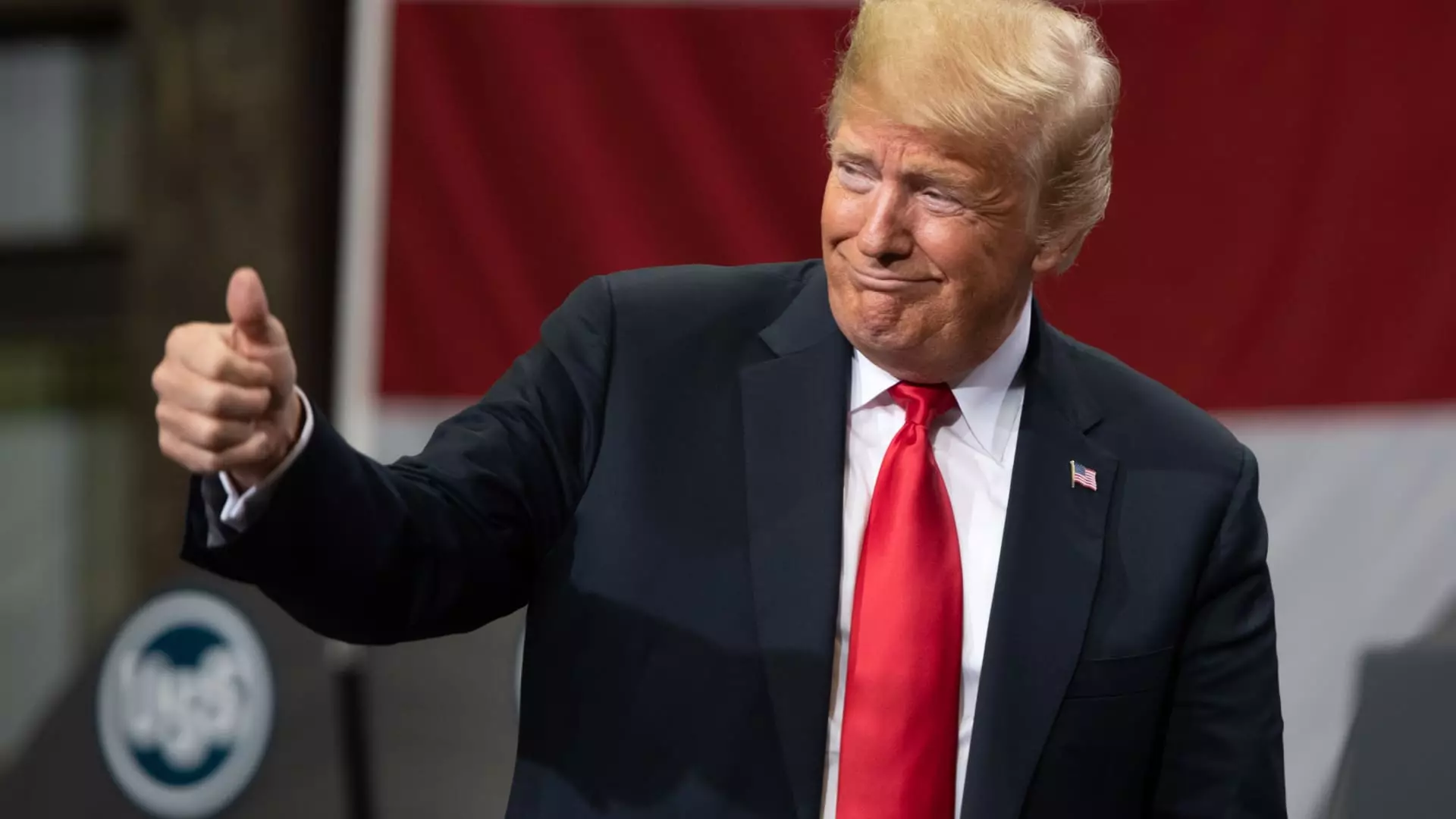In the tumultuous world of stock trading, few figures have wielded as much audacious influence as former President Donald Trump. His latest foray into market advice sent shockwaves across trading platforms, leaving many scratching their heads over the ethical implications of a sitting president endorsing stocks through social media. On a seemingly innocuous Wednesday morning, Trump took to his preferred platform, Truth Social, proclaiming, “THIS IS A GREAT TIME TO BUY!!!” What unfolded after his casual but provocative announcement raises a plethora of questions around market manipulation, insider trading, and the ethical boundaries of political engagement in business.
Trump’s remarks served as a siren call to investors, but their implications can hardly be dismissed lightly. The day following the announcement, stock prices surged significantly; however, attributing this meteoric rise solely to his statement oversimplifies a multitude of realities that investors must navigate, particularly when political machinations are involved. An atmosphere tainted by the requirements of independent judgment becomes a breeding ground for panic and speculation, particularly among retail investors—those less equipped to comprehend the complexities of financial markets.
The Unfolding Market Reaction
Let’s examine the immediate aftermath of Trump’s bold statement. Around 9:37 a.m. ET, when he urged followers to invest, stocks indeed took a perilous climb, particularly the SPDR S&P 500 ETF Trust (SPY) and Trump Media & Technology. The former experienced a remarkable 11% surge at session highs, while the latter rocketed by over 22%. At a superficial glance, this appears commendable. People who invested at Trump’s urging could have seen significant returns—$1,000 invested at the moment of his post turned into approximately $1,222 by session highs. Fascinating, isn’t it? But look closer.
The logic behind these gains raises eyebrows about the ethical fog enveloping Trump’s optimistic proclamations. Did he hold information unknown to ordinary investors? The question of whether his advice constitutes market manipulation hangs heavily in the air. It becomes increasingly evident that political figures, whose actions can sway entire markets, must be held accountable. Certainly, the sharp market movements that followed were not simply a function of fundamental economic indicators but rather an echo of Trump’s unpredictable political brand.
The Distorted Lens of Trust
It is dispiriting that retail investors, more than ever before, may feel compelled to follow the whims and fancies of political influencers. Do we really want to surrender our financial decisions to the social media whims of presidents—past or present? When Trump’s urgent call to “buy” comes to the forefront, it underscores a larger problem: the erosion of trust in market mechanisms. Investors, promised a fair marketplace, now find themselves navigating a landscape riddled with vested interests and unsolicited advice. How long will it be before the line blurs irretrievably between political rhetoric and financial wisdom, rendering the investment community susceptible to the caprices of public figures chasing publicity?
Prime examples of this troubling trend can be found in the stock movements of companies closely associated with the Trump administration, such as Tesla. While the deference to business executives may seem like a benign relationship, it poses a complex ethical dilemma ripe for exploration. Are these truly free markets when political endorsements can spark wild fluctuations in stock prices? The concern isn’t simply speculation; it’s about the foundational principles of market integrity and fairness.
Retrospective Insights on Investor Behavior
Beyond the immediate profits garnered from following Trump’s advice, the long-term ramifications of this invest-and-sell frenzy must be considered. As traders reveled in the freshly minted windfalls, forums were abuzz with opinion—some lauding Trump’s insight, while others voiced concerns about potential insider trading and market manipulation. It is noteworthy that a considerable segment of the investing populace, now more vocal than ever, raised alarms over the ethical implications of these market shifts, questioning whether they could trust their own words and actions in the sphere of finance.
Will such provocations skew investor psychology in the long run? The events surrounding Trump’s provocative statement certainly signal a crucial turning point. As our markets teeter further into this gray area of politics and finance, one cannot help but speculate on how investor confidence will evolve amid these ongoing fluctuations. The capitalistic framework that embodies free trade hinges on trust, something that’s being eroded at an alarming pace.
In summation, the climate in which we invest grows increasingly complex as we grapple with the intrusion of political narratives into the fundamental fabric of our financial markets.

